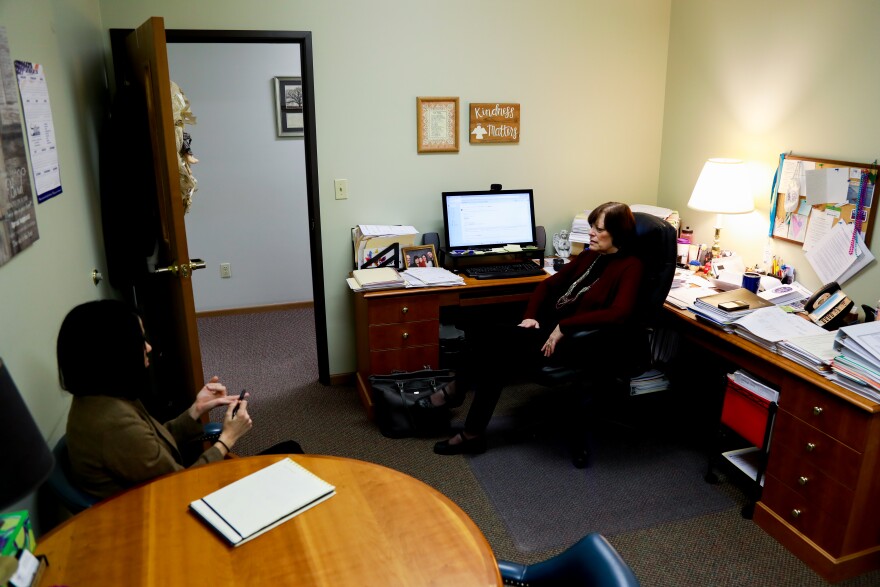In February 2023, Hilary Flint was living with her grandmother in Enon Valley, Pennsylvania, just across the state line from East Palestine, Ohio. Even though Flint works for an environmental advocacy organization, she didn’t realize how much her life would change after a train derailed less than four miles from her home.
“I did not think it would affect my family,” Flint said. “Of course, I have a lot of friends in East Palestine, and so I was worried for them. I didn't think it was gonna affect my house at all.
“So in the next couple of days, there was more and more information coming out about what was on the train. And once I started hearing, you know, some of those chemicals I started to be concerned.”
Flint and her family were not required to evacuate after the derailment, but they were afraid and chose to leave anyway.
They were not alone in their fear.
Derailment led to mental health challenges
Shortly after the East Palestine train derailment, a survey of more than 700 affected community members found that 70% reported experiencing new or worsening mental health symptoms.
The Columbiana County Mental Health and Recovery Services Board partnered with the health clinics that were set up immediately after the derailment, providing mental health care as residents were evaluated for physical symptoms.

“We definitely saw people who directly were impacted and sought help,” said Marcy Patton, the board’s executive director. “Also, many current clients of some of the agencies were seeking additional support because it triggered and exacerbated some…symptoms, whether it was substance abuse, whether it was mental health.”
The Ohio Department of Mental Health and Addiction Services received a federal grant for more than $800,000 to assist in responding to the derailment. One part of the grant is funding for the Mental Health Board to create the East Palestine Community Resiliency Center, which will support residents who were affected by the derailment on an ongoing basis.
The center will be a permanent home for some of the services the Mental Health Board provides, such as therapy, support groups, yoga and art therapy. It will be free for affected residents while there is still grant money available.
The center is expected to open in the coming months, Patton said. It will also help the community prepare for any unexpected events in the future.
“I think we always need the supports, whether it's physical supports or emotional supports,” Patton said. “I mean, just in regular day-to-day life there's always a need for those things. And when something to this scale has happened, I think there's going to be an even greater need to be sure that those supports are available to people.”
Affected residents support each other
Hilary Flint said members of the community have been providing support for each other, too, as they advocate for policy change and environmental restoration together.

Flint no longer lives near East Palestine, but she continues to work for the Beaver County Marcellus Awareness Community, an environmental advocacy nonprofit.
Flint also co-founded the Unity Council for the East Palestine Train Derailment, which she described as “a grassroots group trying to get answers.”
The Unity Council has over 800 members in the Facebook group it uses to stay connected. Flint and others use the group to share news stories about East Palestine and other derailments since then.
Flint said they will continue to support each other, and they continue to have conversations with Pennsylvania Gov. Josh Shapiro and other elected officials to advocate for the community’s restoration.
“I think that in our case, with the East Palestine train derailment, I truly believe they thought that everyone would just move on, and it was going to be okay,” she said. “Because they thought we were just a bunch of uneducated hillbillies, and we wouldn't know what we were exposed to. And we would just keep going and let the railway keep going through our small town.
“What they found out is, you know, maybe they underestimated the community a little bit.”

This story comes from the Collaborative NewsLab at Kent State University in partnership with Ideastream Public Media and is funded by a grant from Grist and the Center for Rural Strategies.





